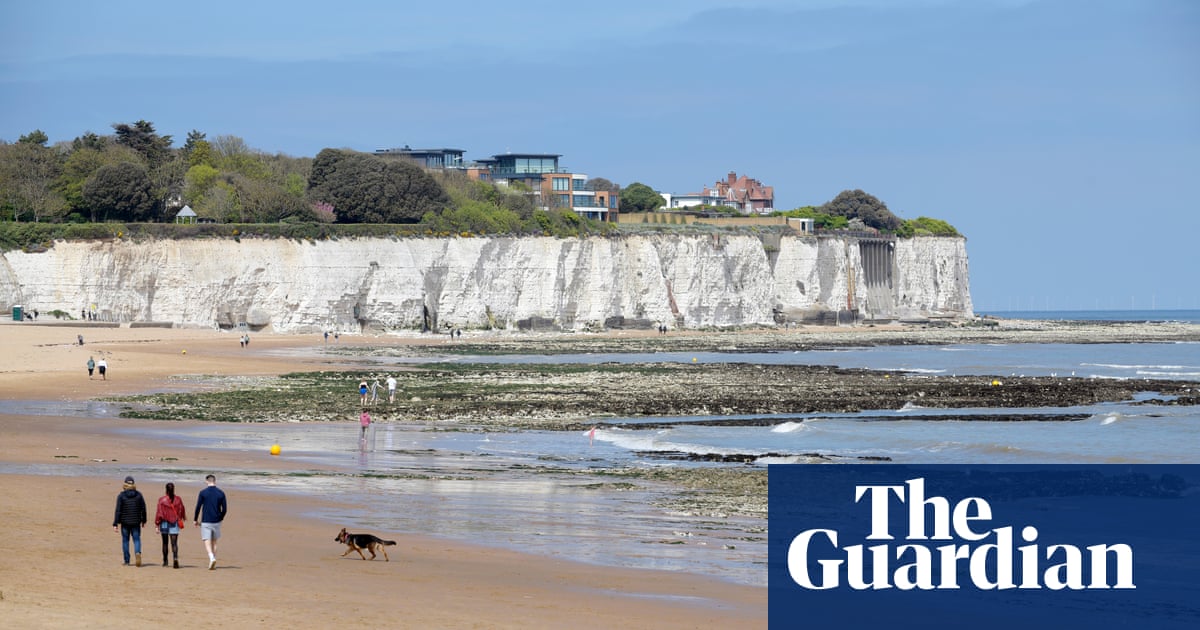
Given the day’s importance and the many long months he and his family had dreamed of it, Jorge would probably have preferred a special guest appearance by Tony Stark, Dr Bruce Banner or Marshall the fire pup from Paw Patrol. Or, better still, all three.
But in the end he had to make do with a surprise visit from Pedro Sánchez. At 12.45pm on Tuesday, surrounded by friends and teachers – and Spain’s prime minister – Jorge fulfilled the biggest ambition of his 12 years by standing up, walking over to his classmates, and playing with them.
To do so, Jorge, who has cerebral palsy and uses a wheelchair, was placed into the state-of-the-art exoskeleton that has changed his life over the past two years, and which could offer millions of children a previously unthinkable degree of movement.
Jorge’s mother, Eva Muñoz-Torrero, said she would never forget the first time he put on the exoskeleton: “He said, ‘You can keep the wheelchair. I’m having this now and I’m taking it home’.” Ever since then, he had begged to be able to take the equipment out of the therapy room he visits twice a week and into his school just outside Madrid.
On his 12th birthday, Jorge got his wish. As he walked into the room where his friends were waiting, he was met with cheers, applause, and the tears that glossed the eyes of a stocky, bullet-headed member of the prime minister’s security detail.
Marsi Bionics, the company that designed the exoskeleton, describes the kit as “the only paediatric exoskeleton in the world that allows the child to move around freely”, and says its uniqueness lies in the elastic technology that adapts to the user’s body.
The firm, which has been running a clinical trial with Madrid’s La Paz hospital and Spain’s National Research Council, says the equipment could help the 17 million children worldwide whose neurological impairments prevent them from walking.
“There’s nothing more beautiful than seeing a child in their school and playing with their friends,” said Elena García Armada, the co-founder and CEO.
But the enormous potential the exoskeleton offers doesn’t come cheap. While Jorge’s family has managed to cover the costs of the therapy – which can reach €30,000 a year – through crowdfunding, not everyone is so fortunate.
“The exoskeleton is a dream but it’s not right that it should only be available to families who can arrange crowdfunding and a massive investment so that their child can walk,” said Muñoz-Torrero.
She would like more families to be able to witness the changes she has seen in her son. Although Jorge has never lacked discipline, determination or an unflagging sense of humour, the exoskeleton has given him and the family a massive motivational boost.
“It’s also really raised Jorge’s self-esteem,” she said. “He doesn’t want to sit in his chair in a corner. He wants to get involved.”
Once the presents had been given, the piñata looted and the happy birthdays sung, Jorge went back to class in his wheelchair. As the prime minister and his retinue departed and the TV cameras beckoned, Muñoz-Torrero offered a brief summary of the morning’s achievements.
“This has been a really important step because we’ve shown how important it is to get technology to people with disabilities,” she said.
“But, more personally, this was what Jorge had wanted since the first day: he wanted to have his friends at his side as he stood up and walked. And he’s fulfilled that dream.”












